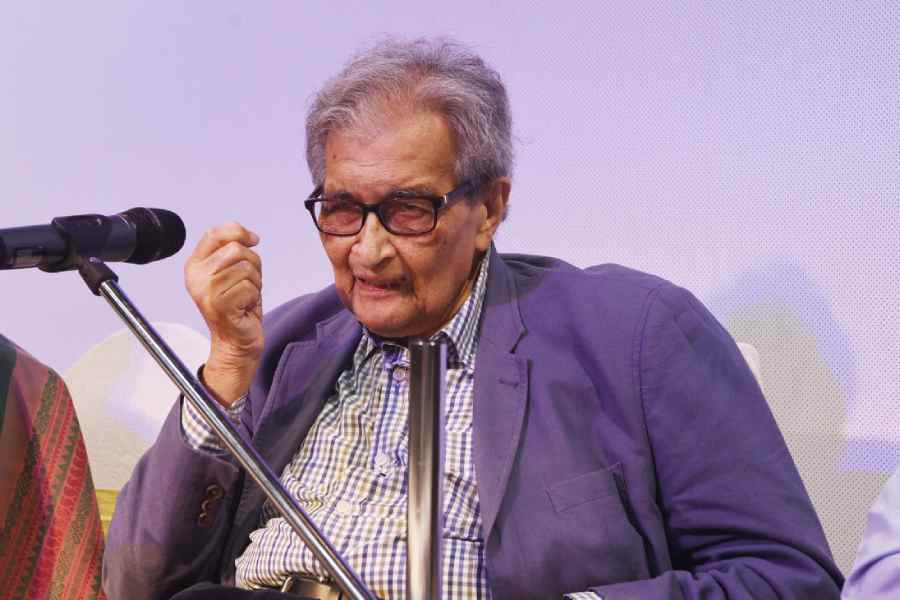Renowned academics, including Nobel laureate Amartya Sen, have issued statements against the “prolonged incarceration without trial of a large number of writers, journalists and social activists, often without so much as a chargesheet against them”.
Sen said in a separate statement: “Under British rule, Indians were often arrested and imprisoned without trial, and some were kept in prison for a long time…. As a young man, I had hoped that as India became independent, this unjust system, in use in colonial India, would stop. This has not, alas, happened, and the unsupportable practice of arresting and keeping accused human beings in prison without trying them has continued in free and democratic India.”
In quite a separate effort, Reporters Sans Frontières (RSF), a Paris-based NGO focused on safeguarding the right to freedom of information, has asked the “European Union to sanction four high-ranking officers of the Delhi police, responsible — directly or indirectly — for exactions against dozens of journalists working or having collaborated with the independent media NewsClick”.
Two of the website’s executives have been in jail since October. They are facing five investigations by Delhi police, the ED, income tax department and the CBI on multiple charges, including terrorism, for allegedly accepting funds illegally from Shanghai-based US investor Neville Roy Singham. The news portal, which has been critical of the BJP, has been unable to pay salaries this year as its accounts are frozen.
The statement on NewsClick focuses “on the undermining of elementary freedoms in India”.
The other signatories to the statement are author Amitav Ghosh; Princeton professors Wendy Brown and Jan Werner-Muller; Judith Butler of the University of California, Berkeley; Columbia University professors Gayatri Chakravorty Spivak, Sheldon Pollock, Jonathan Cole, Carol Rovane and Akeel Bilgrami; Chicago University professor Martha C. Nussbaum; New York University’s Steven Lukes; Yale’s David Bromwich; Thomas Jefferson School of Law professor Marjorie Cohn; Harvard University’s Janet Gyatso; Montreal University’s Charles Taylor; and David Schulman of the Hebrew University in Jerusalem.
The academics said: “All that these individuals have done is to criticise the present government in India. Prabir Purkayastha, a 75-year-old senior journalist, author, and founding editor of Newsclick, whose office and home were repeatedly searched for weeks... for incriminating evidence without any being found, has been arrested and despite being imprisoned for nearly six months, is yet to be served a chargesheet; the harmful effects of such an action on media independence are obvious for everyone to see.”
The statement also mentions those arrested in the Bhima Koregaon-Elgaar Parishad case and the Delhi riots conspiracy case who are behind bars awaiting trial for several years.
“This extended incarceration without trial has been given legislative backing, through an amendment to the Unlawful Activities Prevention Act passed by the Indian Parliament. But legislative backing provides no justification for such incarceration. Indeed, to use it as a justification amounts to saying that Constitutionally guaranteed fundamental rights can be abrogated through a legislative majority; that, notwithstanding Constitutional provisions, someone can be imprisoned for any length of time by a government enjoying a legislative majority. This amounts to undermining the Constitution and overturning the structures of democracy,” the statement said.
The Reporters Sans Frontières did not name the police officers but said that along with London-based Guernica 37 Chambers — a firm of human rights lawyers — it had “submitted the case to the European External Action Service (the European Union’s diplomatic service) with a request to refer it to Member States to adopt sanctions against four officials of the Delhi police’s counter-terrorism unit, who are implicated in an unprecedented crackdown on journalists in the country”.











